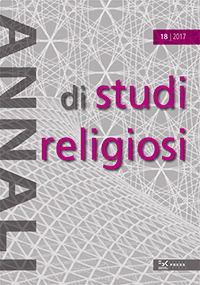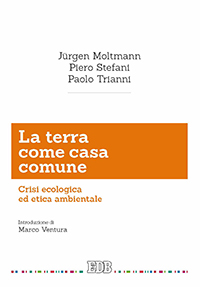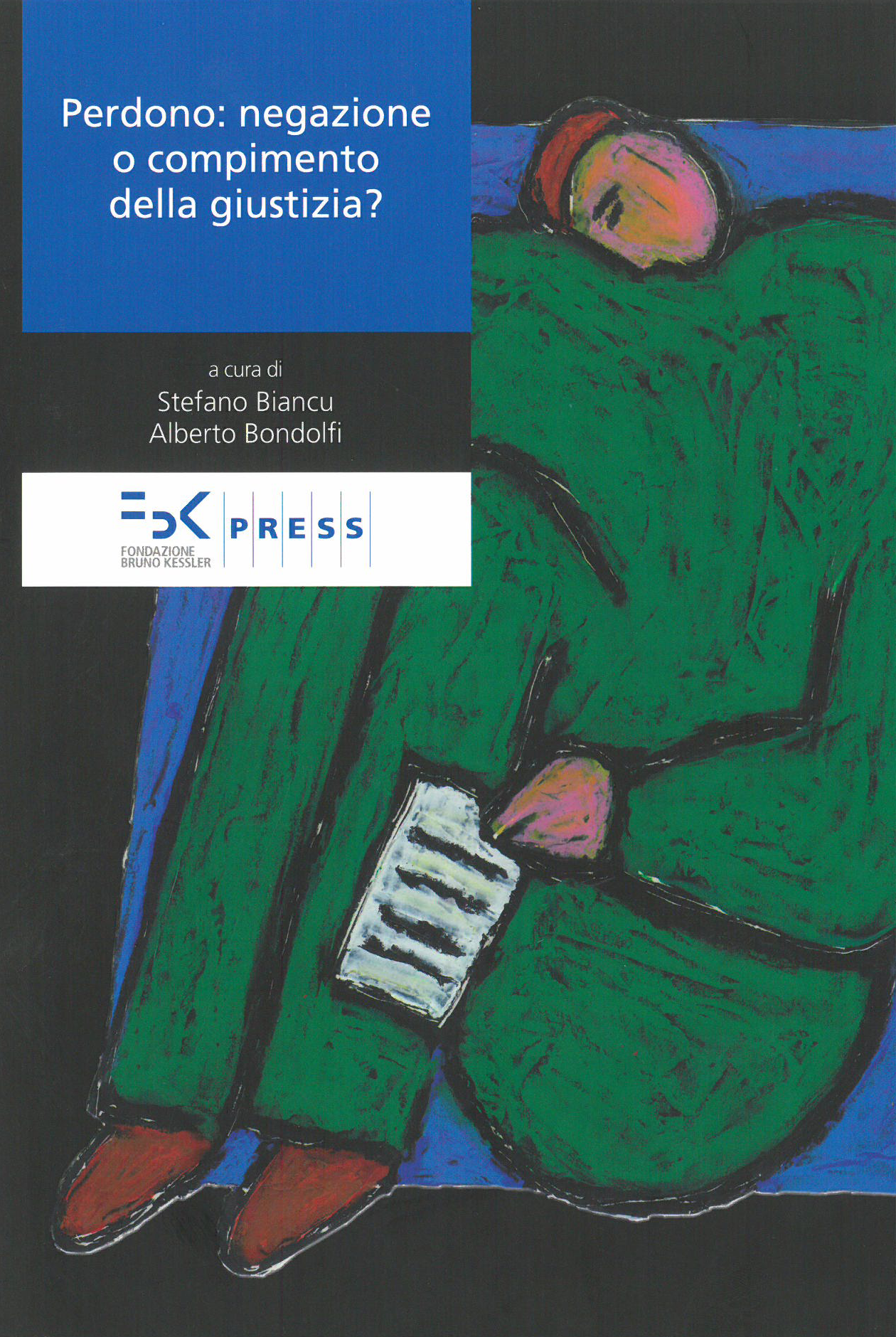Publications
ISR’s researchers publish the results of their work in the Center’s journal and book series, as well as in national and international scientific journals and volumes.
The Center’s publications are generally subject to peer review. Publications are realized in print and/or digital format, and some of them are available in open access.
The editorial team of FBK carries out the editing of the texts and, where needed, the translations of the publications of the Center, published by FBK Press.
SELECTED PUBLICATIONS:
Monica Consolandi
- “Implicit understandings and trust in the doctor-patient relationship: a philosophy of language analysis in pre-operative evaluations”, Theoretical Medicine and Bioethics, (forthcoming).
- Martini C, Consolandi M, Battisti D, Bina F, “Knowledge broker in crisis: public communication of science during COVID-19 pandemic”, Social Indicators of Trust 36(5): Social Epistemology, (2022), DOI: 10.1080/02691728.2022.2116961
- Consolandi M, Riccio M, “Eumanipolazione. Dalla donazione degli organi alla comunicazione medico-paziente, in Bioetica – Rivista Interdisciplinare, anno XXVIII, n.2-3, (2020), pp. 315-335.
- Bazzanella D, Bincoletto G, Consolandi M, Fasan M, Gennari F, La Vattiata F C, Rinaldi L, Roccaro D, Zaccaria C, “Artificial and Biological Neurons: Interdisciplinary Issues and Future Perspectives”, White Paper, Biolaw Journal – Rivista di Biodiritto, n.1 (2021), pp. 353-379.
- Consolandi M, Martini C, Reni M, Arcidiacono P G, Falconi M, Graffigna G, Capurso G, “COMMUNI.CARE (COMMUNIcation and patient engagement at diagnosis of PAncreatic CAncer): study protocol”, in: Hot Topics in Pancreatology from Europe-2020, Frontiers in Medicine, (2020) DOI: 10.3389/fmed.2020.00134
Paolo Costa
- “Montagne risonanti”. Bottega Errante, Udine, (2023, in press)
- “The Post-Secular City: The New Secularization Debate”, Brill, Paderborn, (2022).
- “Prisoners of a Metaphor: Secularization as a Deicidal Epidemic”, Interdisciplinary Journal for Religion and Transformation in Contemporary Society, 7.2, (2021); (Special Issue: Religion and Disease, ed. by Rüdiger Lohlker), pp. 376-397.
- “Un romanticismo ragionevole: il tesoro filosofico di Charles Taylor”, introduzione a: C. Taylor, Modernità al bivio: l’eredità della ragione romantica, a cura di P. Costa, Marietti 1820, Bologna, (2021), pp. 5-20.
- “Reenchantment as Resonance”, in: H. de Vriese – M. Meijter (eds.), The Philosophy of Reenchantment, Routledge, London and New York, (2021), pp. 132-158.
Valeria Fabretti
Silvio Ferrari
Lucia Galvagni
- A. Nordberg, T. Minssen, O. Feeney, I. de Miguel Berlain, L. Galvagni, K. Wartiovaara, “Regulating germline editing in assisted reproductive technology: An EU cross-disciplinary perspective”, Bioethics, 34 (2020), pp. 16- 32.
- “A digital spirituality for digital humans?”, in: E. Innerhofer, G. Isetti, H. Pechlaner (eds.), Religion in the Age of Digitalization. Spirituality and Human Interaction, Routledge (2020), pp. 144-154.
- “New motherhood? Embodiment and relationships in assisted reproductive technology”, Phenomenology and Mind, 19, (2020), pp. 112-12.
- “Narrazioni cliniche. Etica e comunicazione in medicina”, Carocci, Roma, (2020).
- “Salute, benessere e corporeità: il contributo delle religioni e della spiritualità”, Daimon (2021), pp. 151- 164.
Sara Hejazi
- “Il senso della specie. Perché la cultura planetaria è il destino dell’umanità”. Erickson, Il Margine, (2021) ISBN: 9791259820266.
- S. Hejazi, M.C. Giorda, M. Bombardieri (eds.), “Capire l’Islam. Mito o realtà?”, Scholè, (2019).
- “Humankind the best of Molds. Islam confronting transhumanism”, SOPHIA, 58, 677–688 (2019). https://doi.org/10.1007/s11841-019-00755-7.
- “Religion2go! Sperimentare la realtà virtuale nella super diversità”, Annali di studi religiosi, 19, (2018), pp. 213, ISSN 2284-3892 .
- “Angeli, demoni, cattedrali e crocifissi virtuali. I simboli cristiani nei videogiochi”, in: “la manipolazione del sacro”, V. Montieri (ed.), Mimesis, (2021).
Deborah Sabrina Iannotti
Eugenia Lancellotta
- “Is the biological adaptiveness of delusions doomed?”, Review of Philosophy and Psychology 13, (2022), 47–63.
- Lancellotta, E. and Bortolotti, L., “Delusions in the two-factor theory: pathological or adaptive?” European Journal of Analytic Philosophy, 16(2), (2020), 37-57.
- Lancellotta, E. and Bortolotti, L., “Are clinical delusions adaptive?”, WIREs Interdisciplinary Reviews. Cognitive Sciences. 10(5): e1502, (2019).
Massimo Leone
- “Religious Conversion and Identity: The Semiotic Analysis of Texts”. London and New York: Routledge (2004), 242 pp.
- “Saints and Signs: A Semiotic Reading of Conversion in Early Modern Catholicism”. Berlin and New York: Walter de Gruyter, (2010); 656 pp.
- “Spiritualità digitale: il senso religioso nell’era della smaterializzazione”. Udine: Mimesis, (2014).
- “Sémiotique du fondamentalisme : messages, rhétorique, force persuasive”. Paris: l’Harmattan,(2014); Arabic translation in 2015.
- “On Insignificance”. London and New York, Routledge, (2019), 226 pp.; Chinese translation in 2019.
Boris Rähme
- “Religion and Innovation: Charting the Territory”, in: B. Godin, G. Gaglio, D. Vinck (eds.), Handbook of Alternative Theories of Innovation, Cheltenham, UK, Northampton, MA: Edward Elgar Publishing (2021), pp. 310-333.
- “Artificial Intelligence and Religion: Between Grand Narratives and Existing AI”, Material Religion, 17.4, (2021), pp. 547-549, DOI: 10.1080/17432200.2021.1947030.
- “Religious Disagreement and Religious Relevance: A Perspective from Contemporary Philosophical Epistemology”, ET-Studies: Journal of the European Society for Catholic Theology, 11.1, (2020), pp. 25-46. DOI: 10.2143/ETS.11.1.3287651.
- “Is Transhumanism a Religion?”, in: G. Isetti, E. Innerhofer, H. Pechlaner (eds.), Religion in the Age of Digitalization: From New Media to Spiritual Machines, New York, London: Routledge, (2020), pp. 119-134.
“Digital Religion, the Supermarket, and the Commons”, Sociétés 139.1, (2018), pp. 73-86.
Alberto Romele
- Romele, A., and Severo, M., “Que veulent les images de l’IA ? Une exploration de la communication scientifique visuelle de l’intelligence artificielle”, Sociétés & Représentations (2022).
- “Images of Artificial Intelligence: A Blind Spot in AI Ethics”, Philosophy & Technology (2022).
- “Is Critical Constructivism Critical Enough?”, in: D. Cressman (ed.), The Necessity of Critique: Andrew Feenberg’s Philosophy of Technology, Springer, (2022).
- Romele, A., Reijers, W., and Coeckelbergh, M. (eds.), “Interpreting Technology: Ricoeur on Questions Concerning Ethics and Philosophy of Technology”, Rowmann & Littlefield, Philosophy, Technology, and Society Series, (2021).
- “Digital Hermeneutics: Philosophical Investigations in New Media and Technologies”, Routledge, (2020)
Debora Tonelli
- (ed.), “Fratelli tutti? Credenti e non credenti in dialogo con Papa Francesco”, Castelvecchi, Roma, (2022).
- “Decentralizing Theology: The Second Vatican Council and Peter Phan”; in: Lefebure L. (ed), Theology without Borders. Essays in Honor of Peter C. Phan, Georgetown University Press, Washington D. C. (2022), pp. 219- 234.
- (ed.), “Religion, Violence and Reconciliation”, special issue in Annali di Studi Religiosi, 21/2020, I (2020), pp. 161-281.
- “Der Dekalog. Eine retrospektive Betrachtung”, Katholisches Bibelwerk, Stuttgart (2017).
- “Immagini di violenza divina nell’AT”, Dehoniane, Bologna (2014).
Enrico Piergiacomi
- “«Amicus Lucretius». Gassendi, il «De rerum natura» e l’edonismo cristiano”, Berlin-New York, De Gruyter, (2022).
- “«Horror» in Lucretius. DRN III, 28-30, the sublime and the Epicurean «proficens»”, Philosophie antique, 22 (2022), pp. 29-63.
- “Sin and Divine Pleasure in the Atomistic Tradition: from Epicurus’ Theology to Gassendi’s «Syntagma philosophicum»”, Freiburger Zeitschrift für Philosophie und Theologie, 69.2 (2022), pp. 213-230.
- “Language”, in: P. Mitsis (ed.), The Oxford Handbook of Epicurus and Epicureanism, Oxford, Oxford University Press, (2020), pp. 308-332;
- “Storia delle antiche teologie atomiste”, Roma, Sapienza Università Editrice, (2017).
Ilaria Valenzi
- “Il populismo religioso tra teologia e politica (curatela e introduzione)”, Claudiana, Torino, (2022).
- “A Multiplication of Blessing: Families and LGBTQ Rights within the Waldensian Church”, in: N. Palazzo, J.A. Redding (eds.), Queer and Religious Alliances in Family Law Politics and Beyond, Anthem Press, (2022).
- “L’impatto del Covd – 19 sugli ordinamenti giuridici delle Chiese cristiane protestanti. Prime note”, Daimon – Annuario di diritto comparato delle religioni, Il Mulino, Bologna, (2021).
- “Libertà religiosa e intelligenza artificiale: note introduttive”, Quaderni di diritto e politica ecclesiastica, 2, (2020), Il Mulino, Bologna, (2020).
- “Modello giuridico e modello teologico di accoglienza. L’esperienza dei corridoi umanitari”, in: D. Ferrari, F. Mugnaini (a cura di), L’Europa come rifugio? La condizione di rifugiato tra diritto e società, Betti Editore, Siena, (2019).
Journal
-
![]()
Annali di studi religiosi
“Annali di studi religiosi” is the journal of the Centro per le Scienze Religiose (ISR) of the Fondazione Bruno Kessler. It appears once a year and publishes articles both by the Center's researchers as well as outside academics on topics related to religious transformations with special emphasis on the contemporary context.
More
Series
-
![]()
Nuova serie
This series is home to both monographs and essay collection by the Center's researchers as well as outside academics on topics related to the Center's research projects.
More -
![]()
FBK Press
FBK Press publications have the aim of making the research results of the Fondazione Bruno Kessler available to a wide audience. Special attention is paid to the regional dimension and the younger generations.
More


